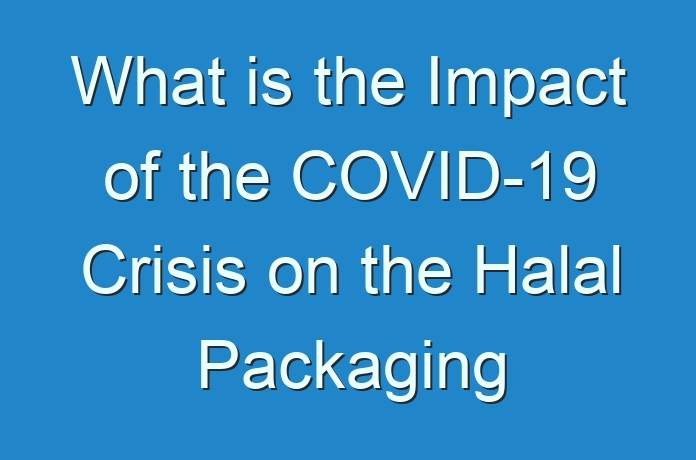
The term ‘Halal’ refers to permitted under Muslim law. Many of us assume that the term ‘Halal’ refers to food only; however, Halal certification can apply to a number of categories, including food, beverages, pharmaceuticals, healthcare, cosmetic products, and also packaging. Increasing population of the Muslim community across the world, coupled with increasing awareness about Halal certification, is anticipated to drive demand for Halal products and services across the world in the coming years.
Major growth drivers for the Halal packaging market include: growing Muslim population across the world, increased marketability of products due to Halal certification, and improved awareness about Halal certified products and services. However, the increased cost of products in case of carrying out customized Halal packaging can pose a threat to the market growth.
The Halal packaging market can be segmented on the basis of end use industry, which typically includes food and beverages, cosmetics, and others. It can also be classified on the basis of various materials such as plastic and paper.
Get PDF brochure for Industrial Insights and business Intelligence @ https://www.transparencymarketresearch.com/sample/sample.php?flag=S&rep_id=9617
As the name suggests, Halal packaging involves using Halal certified raw materials for packaging materials and Halal certified lubricants for packaging machinery. The lubricants used in packaging machinery should strictly avoid the use of porcine stearates.
Cardia Bio-plastics, a supplier of sustainable resins to the global plastic and packaging industries, has received Halal certification for its range of bio-hybrid resins.
Generally, polymers are produced from petroleum based raw materials. However, additives are added to the polymers to improve their properties. For Halal consumers, the primary concern is the usage of additives derived from indefinite sources for the manufacture of polymer resins. The usage of additives which are derived from non-halal animals (animals which are not permitted for slaughtering according to Islamic law, such as swine) or from permitted animals which were not slaughtered in accordance with Islamic slaughtering / Halal rules, is prohibited for Muslim consumers.
With regards to Halal packaging, the polymer resins utilized to produce the packaging material contain additives derived from Halal sources and a certificate for guaranteeing that the Halal reliability of the polymer resins is maintained throughout the entire supply chain.
As per the Halal packaging practices, during the manufacturing process, a qualitative investigation for screening and identifying any trace of animal-based element used in additives is conducted, and if any such element is found, it is subsequently substituted with equivalent additives from Halal sources. The method for ensuring if the polymer resins used for packaging are Halal certified involves:
- Use of obstructions in the manufacturing facility to enclose the processing or manufacturing units for avoiding external contamination
- Choosing ingredients, which are Halal, in particular those which are expected to be used as additives
- Analysing the polymer resins by detecting the presence of animal-based elements, such as animal fats and pig derivatives, to ensure that the polymer resins are completely free from animal based ingredients
The above mentioned methods may further include adopting a system for maintaining Halal ingredients database and procedures
Regionally, in view of the booming Muslim population in the Middle East, North Africa, and South and Southeast Asia, the market in these regions is anticipated to lead the overall Halal packaging market, and would be followed by the former Soviet Union and China markets. Also, each region has its own Halal authority for giving Halal certification to a product or a service.
Major market players in Halal packaging market include MM Karton, Varsity Packaging, and Al Halal Packaging. Currently, the market is fragmented with a very few market players. However, the packaging giants are enthusiastic about getting Halal certification, as the market potential of Halal packaging is projected to be very high. If the players in the packaging business want to become Halal certified, they may have to change some of their suppliers or modify their production process.
This study by TMR is all-encompassing framework of the dynamics of the market. It mainly comprises critical assessment of consumers’ or customers’ journeys, current and emerging avenues, and strategic framework to enable CXOs take effective decisions.
Our key underpinning is the 4-Quadrant Framework EIRS that offers detailed visualization of four elements:
- Customer Experience Maps
- Insights and Tools based on data-driven research
- Actionable Results to meet all the business priorities
- Strategic Frameworks to boost the growth journey
Purchase our Premium Research Report at: https://www.transparencymarketresearch.com/checkout.php?rep_id=9617<ype=S
The study strives to evaluate the current and future growth prospects, untapped avenues, factors shaping their revenue potential, and demand and consumption patterns in the global market by breaking it into region-wise assessment.
The following regional segments are covered comprehensively:
- North America
- Asia Pacific
- Europe
- Latin America
- The Middle East and Africa
About Us
TMR has a track record to provide ace market research solutions that has earned us the trust of our clients for their business intelligence needs. Serving 13 industry verticals with a database of over 1,000 reports and 1 million + data points, our expanse to provide market research solutions is exceptional. We deep dive for a thorough understanding of the subject, gather precise information, and then analyze it to present solutions that are par excellence.
Contact:
90 State Street, Suite 700
Albany, NY 12207
Tel: +1-518-618-1030
Email: sales@transparencymarketresearch.com
Website: https://www.transparencymarketresearch.com





